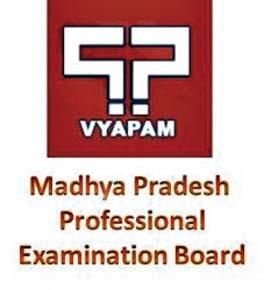
NEW DELHI (TIP): The Madhya Pradesh Professional Examination Board (MPPEB) scam also known commonly by its Hindi acronym as the “Vyapam scam” hits headlines on and off throughout the year. Last week a reporter with Aaj Tak news channel collapsed while interviewing kins of victims, reports say post-mortem does not indicate foul play, but viscera reports are awaited. ext day , the dean of a college from Jabalpur who was assisting the Special Task Force in the investigations was found dead at a hotel in New Delhi. Activists say that the English media has not reported the scam as extensively as they should have.
But what is the Vyapam scam?
One of the first complaints were registered way back in 2000, but it was only by 2007 that the scam came to fore as a full fledged professional racket. Investigations and arrests started in 2013 after new details emerged.
The MPPEB has been responsible for conducting entry into professional courses like the Pre-Medical examinations for the state since 1982. Complaints of irregularities while conducting the examinations first surfaced in 2009, and the scam blew over in 2013. The Vyapam scam pertains to manipulation in the selection process for government jobs conducted by MPPEB which came to light after a report by the Madhya Pradesh Local Fund Audit office for 2007-08 found alleged financial and administrative irregularities, including unauthorized disposal of application forms, worth crores of rupees by the MPPEB. In July 2013, the crime branch at Indore arrested 20 people, 17 from Uttar Pradesh for impersonating MPPMT candidates. The lid blew over what was apparently an entirely rigged system.
A list containing names of 317 candidates was confiscated from Dr Jagdish Sagar, considered to be the mastermind of the scam. He was arrested by the Indore police on July 12, nine days before the PMT counselling.
Modus operandi
Impersonation: In this, all the detail is in the admit card, including name, date of birth, and roll numbers, of the candidate who is applying for the seat. However, the photograph is of the impersonator. An impersonator is one who writes an exam on behalf of someone else. In such cases, they are brilliant students who can score very high marks. The concerned officers on the examination board change the photograph back to that of the original candidate after the exam.
Engine and bogie system: A person is fixed by people on the board whose work is like that of an engine. He/She is seated strategically between two other candidates who want a seat. The engine helps them copy from his/her own paper. The examiners are usually bribed to fix the seating arrangements.
OMR sheets: The select candidates are advised to leave their answer sheets blank. They are randomly given high percentages after the exam. They then fill in the answers in the OMR booklet according to the marks they have already been given.
Arrests and accusations
In December 2013, the Special Task Force investigating the scam under the supervision of SIT formed by the Madhya Pradesh High Court produced a supplementary charge-sheet against the 34 accused in the Indore district court. The charge-sheet ran into 23,000 pages and 30 out of the accused were the parents of children.
In April next year, 27 students of MGM College were expelled for fraudulently clearing PMT-2012. These were only those who could be identified, the total number of fraudulent candidates was 286 that year. In June 2014, the STF said that the police had arrested close to 100 medical candidates in connection with the scam. On the 16th of the same month, the former technical education minister in the BJP govt in the state, Laxmikant Sharma was arrested for his involvement in the contractual teachers scam. Those arrested in connection with the impropriety also include MPPEB’s exam controller Pankaj Trivedi, MPPEB’s system analysts Nitin Mahendra and Ajay Sen and state PMT’s examination in-charge C. K. Mishra.



Be the first to comment